Ever wonder what underlying challenges women in law face? Why were they re-entering the Top 200 law firms at a lower rate than ethnically diverse attorneys or leaving their firms mid-career at a rate disproportionate to that of their male colleagues? Leopard Solutions set out to make sense of these troubling trends and gather strategies on what can firms do when it hosted its inaugural in-person Women in Law seminar, in October 2023.
Held at the New York City office of the global law firm Latham & Watkins LLP, company, Founder, and CEO Laura Leopard led the event with a keynote presentation that used data to highlight critical strategies the industry can use to tip the inequality scale to the right side. That was followed by a panel discussion consisting of six women partners at varying stages of their careers, each giving their primary account of widespread disparities in how they are treated and the opportunities they see before them.
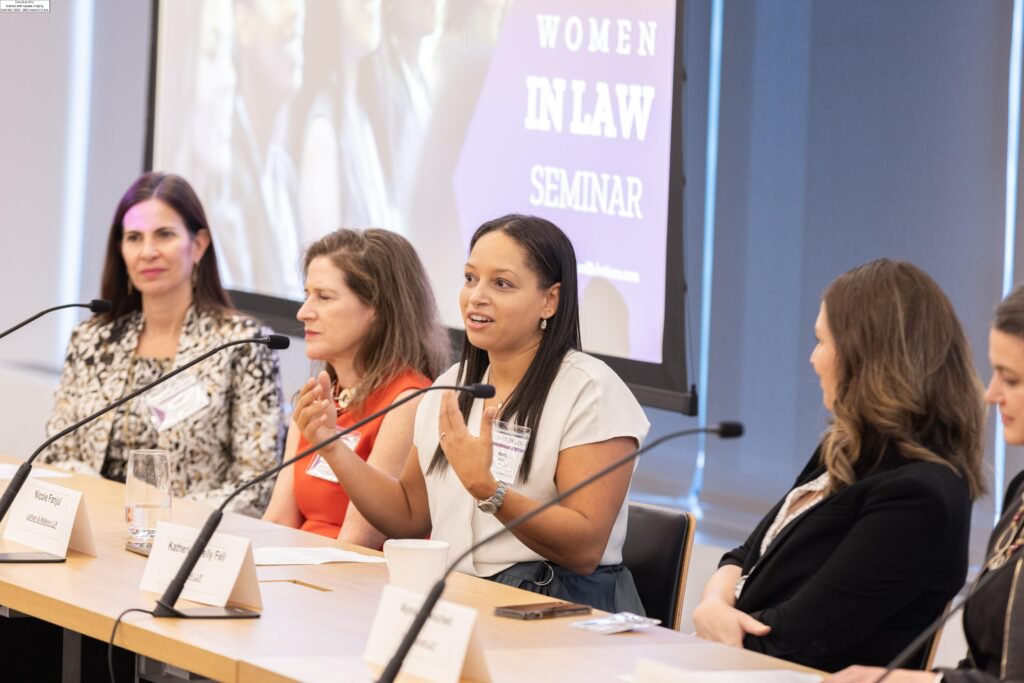
The panel, assembled by Michèle O. Penzer, a partner at Latham & Watkins LLP, who formerly chaired the firm’s Diversity Committee and Associates Committee and who helped to found Women Enriching Business (WEB), a firm-wide initiative developed to help give women the tools to develop networks and business development skills. Joining her on the dais were her friends and colleagues, Nicole D. Fanjul, Partner, Latham & Watkins LLP, Alyssa A. Grikscheit, Partner, Sidley Austin LLP, Vanessa L. Jackson, Partner, Davis Polk & Wardwell LLP and Lori E. Lesser, Partner, Simpson Thacher & Bartlett LLP. The strength of the preexisting relationships between the panelists lent itself to a seamless on-stage rapport that fostered rich anecdotes.
Mentors and Finding Them
The first topic of discussion was that of mentorship and how it contributes to one’s own definition of success. Most firms offer formal programs to encourage such relationships, but this often forces arrangements of people with little more in common than a junior/senior dynamic. The panelists advocated that women lawyers seek out mentor relationships on their own based on personality fit and relevant experience, even if identifying them means stepping outside of one’s comfort zone. If relationships formed organically, they asserted, they are more likely to bear fruit. The partners recommended having multiple mentors, particularly outside of one’s practice area, the idea being that the person who advises you on client matters might be different from the person who educates you on the firm’s political landscape or even the one who advises on balancing work with motherhood, and so forth. The speakers were all mentored by male partners at the initial stages of their careers, often due to a lack of females suitable for the role. In the case of two panelists, they received formative counsel from male partners of a different race and ethnic makeup. The consensus was while one might be more apt to discuss certain experiences with mentors of the same gender, one should not discount male attorneys’ capabilities to impact one’s career positively. To this end, Lori Lesser noted that in her experience, men of a certain age, particularly as they became fathers to daughters, have made strides in embracing gender equity.
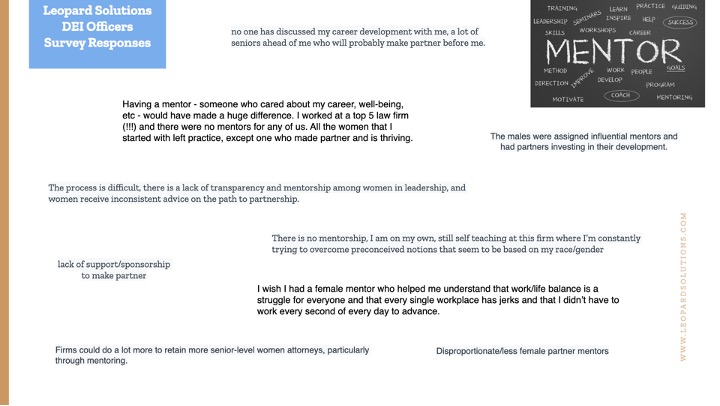
Sponsorships and How to Get Them
The discussion next veered toward differentiating mentorship from sponsorship. The panel defined sponsorship as people who use their power to lift you to where you want to go. Finding someone to champion you at the firm requires a level of proactivity and calculation that extends beyond simply selecting a mentor from whom to learn the ropes. Indeed, the process might involve lingering in the office after hours or not being more forthcoming with questions. The panelists suggested that women should not shy away from being “cold-blooded” when it comes to targeting the right people to have conversations with about their career goals and how to go about attaining them. As one panelist stated, “You don’t know their side of the story until you get there.” Naturally, a mentor and a sponsor may be the same person or even in the same practice area, which is not problematic if one is actively leveraging relationships to curry favor with that person “in the room.” Sponsorships need not only include ambitions of making partners but can also present opportunities to get your name floated. The relationships one forges may put a lawyer on track for a lucrative lateral move or a successful segue to in-house or a government agency. Indeed, a firm might even be keen to help place one of their own in a prestigious role elsewhere so they can then tout the whereabouts of their alums. In this way, a lawyer may ascend to her desired position on account of the mutual interest it serves her firm.
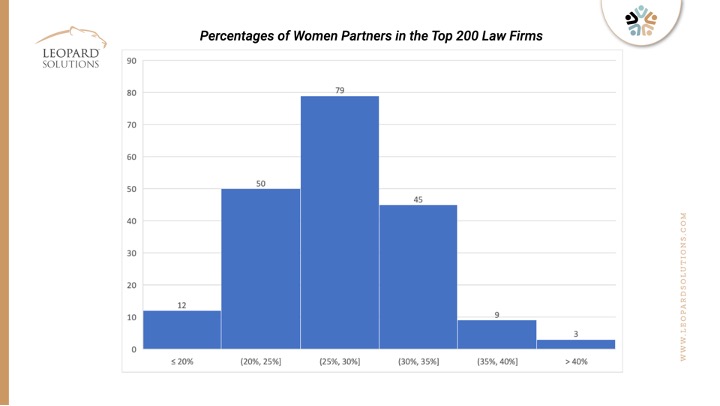
Take Credit Where it is Due
Next came practical bits of advice designed to boost their agency when promoting themselves to achieve career growth; One woman panelist said not to be afraid to “advocate stylistically:” Always use “I” when referring to wins – it doesn’t make you any less of a team player, tout your extra-curricular as having been conducted in the interest of “practice development,” “have a script” and “don’t hold back.” Women fear the label “pushy” at their own detriment. You need not check all the boxes to put your name in the ring for that better job or promotion. It was pointed out the genders differ in this regard, one woman had observed that her male counterparts often, without pause, will apply for something when they meet minimal criteria, as opposed to women who have a misguided perception that they need to match the job description to the letter to be a qualified candidate. Again, any timidity displayed reduces one’s chances to expand one’s brand.
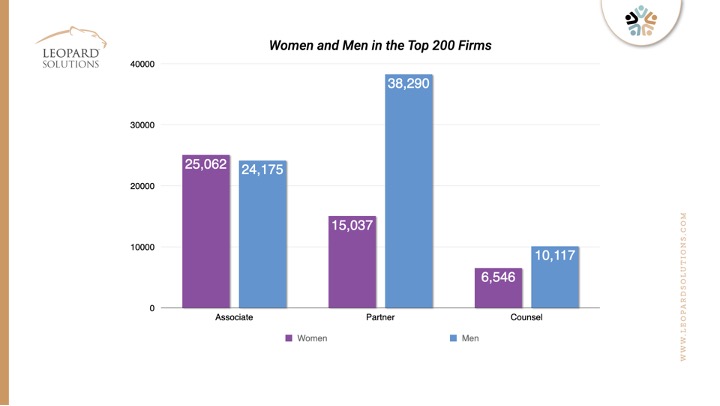
Mid-level Associates Challenges
Furthermore, it is important for women It’s crucial to understand the difference between doing substantive legal work and corporate housekeeping, as the latter can distract you from succeeding in your primary role. While it’s important to be a team player and offer to help, taking on too much work can hinder your ability to excel in your job. It’s essential to strike a balance between volunteering and managing your workload so that you can perform your duties effectively. There is a gentle way to parry away an undesirable assignment by noting the myriad other things you have going on, while politely asking a colleague if they might assist. Conversely, women should, without pause, go after the meaty assignments where success could pave the way to advancement. Women already in positions of power can help their fellow female attorneys by running interference when they see the same women repeatedly getting tasked with busy work. Unconscious bias training goes a long way toward dispelling myths such as men do not multitask well, or women are better suited toward administrative work and ensuring workflow distribution is equitable.
The moderator posed the question, ” Have you ever tried to cover your identity as a woman for professional purposes? The responses were collectively no, but perspectives and experiences ran the gamut. The panelists recounted stories of how they had utilized womanhood to their advantage. One of the panelists spoke about using her red dress as a clever means for clients to spot her in a crowded room. While another spoke of her gender being an asset when it came to relationship-building with male colleagues. She felt her being a non-male in the room was often disarming to her male counterparts. They felt “less competitive” and were more willing to spill personal details. While imposter syndrome was a real thing, particularly cited by the ethnically diverse women on the stage, they wove tales of it playing to their advantage. They found themselves to be more likable to clients than their male, white, heterosexual coworkers, who were often less relatable, or the overconfidence born of privilege they exuded came across as a deterrent.
Once in a position of power or at the partner level, women revealed taking a different approach to business development than their male cohort. The conventional wisdom seemed to be you need to find what approach works best for you, challenging the boundaries of your comfort zone but within the parameters of authenticity. One panelist related, “It won’t happen by accident for women as often as for men.” Clients like personal touches, and while all attested to golf course diplomacy being alive and well, they assured the audience, “you don’t have to play golf” to close deals. Historically an elitist sport, the game was exclusive for years and helped to perpetuate the old boy’s network for reasons as varied as clubs disallowing underrepresented groups to it being cost-prohibitive to start. While things have since shifted towards the modern, interest, real or feigned, was not a requirement to conduct business. One panelist elaborated that it was never about golf per se as it was about what it represented- which was hours of unadulterated, leisurely, sometimes boozy, time alone with the ear of clients. With a little creativity, which is achievable in other ways. One woman lawyer spoke of hitting the links with her team but hanging back in the clubhouse and enjoying cocktails rather than playing. Another found attending a baseball game to be equally effective when it came to closing on business transactions.
The women partners also discussed their dynamics surrounding junior male associates they ascended past in the pecking order and how they struggled to receive their marching orders from the women who now outranked them. Which served as an important reminder to try and interpret biases first because it is, at times, more challenging to be a woman in the industry. Panelists provided more sage advice around client expansion to the women lawyers in the audience spanning different firms. A panelist went on record saying she estimated making about sixty pitches per year geared at building business, which can be exhausting. She opined it was much better to become a specialist in an area. It is often the preference of clients for the law firms they retain to be one-stop shops for different facets of the law. To that end, it is much easier to generate more business from existing clients than it is to find new revenue streams. This is why it is always beneficial to build friendships, talk up colleagues in other practice areas, or partner with other institutions because paying it forward can often become reciprocal.
Before opening the field to questions, the panel closed with wide-ranging life advice tailored to deliver value to juniors in the crowd just getting their business of law bearings. In this segment, the panelist spoke plainly about the realities of juggling parenthood with a highly demanding job. Here is a list of unattributed quotes:
“Don’t plan everything, you might be surprised.”
“Don’t opt out before you try it out.”
“I got the big things right (I kept my kid(s) alive, they aren’t in prison)”
“Be flexible”
“Balance fluctuates”
“Take the long view.”
“Outsource what you can (see: laundry, cooking)
“Find a modern-thinking partner, get a good nanny.”
“Lean into the class mom (prioritize attending can’t miss events for your kids, skip the can miss)”
“Practice self-forgiveness”
“Find the things that do matter.”
The data illustrates that associates hired at the entry level, amongst both genders, occur at comparable rates but that women are dropping out at the mid-career stage because they are less inclined to make the lateral move often necessary to invigorate one’s career. It is crucial that firms figure out how to repair this broken pipeline because the data tells us diverse teams perform at a higher level and work harder and more efficiently.
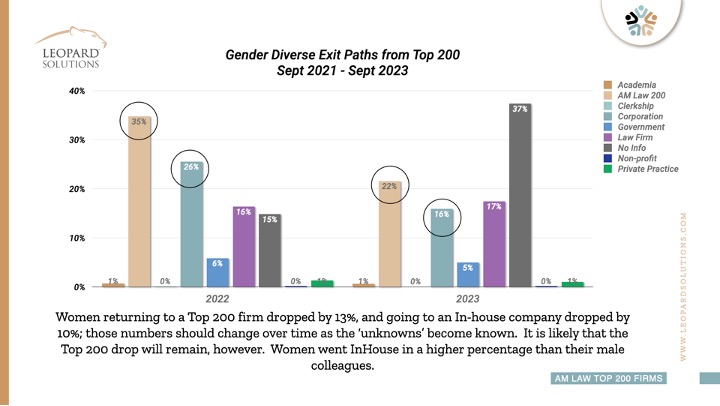
Leopard Solutions diverse data solutions are designed to fulfill a wide variety of intelligence needs, from job searches to recruitment to competitive intelligence in the legal industry serving law firms, legal service providers, recruiters, law schools, and corporations. Our data and technology are continuously updated to ensure market relevance and a competitive edge. Established in 2002, Leopard Solutions has grown into one of the most recognized and trusted legal market data providers in the United States. We are proud to be a diverse employer and a certified Women’s Business Enterprise.
For more information about our seminars and data platform, contact us.

